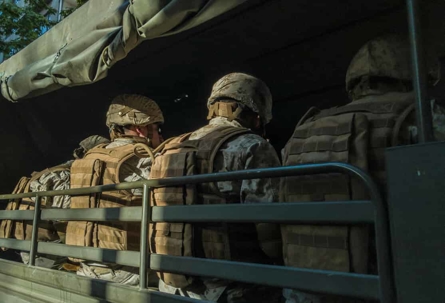Understanding the UCMJ: Core Principles and Structure
Military deployments come with a unique kind of pressure. You’re expected to perform at your best, follow orders, and keep your head on straight—even in the most unpredictable environments. But when the stakes are high and stress runs even higher, mistakes can happen. And if they do, the Uniform Code of Military Justice (UCMJ) is the system that governs how those mistakes are handled.
Let’s break down how the UCMJ applies while deployed—and what you need to know if you’re facing accusations.
Key Articles of the UCMJ Relevant to Deployment
Some articles of the UCMJ come up more than others when you're in the field. Three in particular tend to carry the most weight: Article 15, Article 92, and Article 134.
Article 15 deals with non-judicial punishment. It’s a faster way for commanders to handle minor offenses without a full court-martial.
Article 92 covers failure to obey a lawful order or regulation—a big one when operational discipline is critical.
Article 134 is the catch-all for misconduct that isn’t covered elsewhere.
Violating any of these can trigger serious consequences: demotion, pay loss, or even a discharge. A non-judicial punishment might sound less severe, but it still leaves a mark on your record—and your future.
For deployed service members, knowing how these articles function in real-world situations is crucial. You may not have time to process what’s happening before action is taken. But that doesn’t mean you don’t have rights.
Know Your Rights Under the UCMJ
Even when you’re thousands of miles from home, you still have legal protections. Under the UCMJ, you have the right to remain silent, to be informed of the charges against you, and to call witnesses in your defense.
You also have the right to legal representation. That could mean working with a JAG attorney or bringing in a civilian defense lawyer—your call.
The sooner you connect with legal counsel, the better. Whether it's during the investigation phase or when you're presented with an Article 15, having someone who knows the system on your side makes a huge difference. Don’t wait until things spiral to get the help you need.
Navigating UCMJ Proceedings During Deployment
What Happens When You're Accused
If someone reports a violation, it kicks off a process that starts with an investigation. This could be something as small as a preliminary inquiry or as involved as a full-blown investigation depending on the situation.
Investigators gather evidence, talk to witnesses, and submit their findings. From there, your command decides what action—if any—will follow.
Now, being under investigation during deployment adds another layer of stress. Access to evidence or witnesses might be limited. You may be pulled away from duties to participate in interviews. It's not ideal—but the goal is to get the facts straight.
What to Know About Article 15 (NJP)
If you’re offered non-judicial punishment, you have a choice: accept it or demand a court-martial. That’s not a decision to make lightly. NJP can feel like the easier option, but it still carries penalties—extra duty, rank reduction, and pay loss are all on the table.
It can also follow you long after deployment ends. Commanders often lean on NJP in the field because it's quick and avoids dragging out disciplinary issues. But you still deserve time, support, and clarity before making any decisions.
Maintaining Discipline and Order During Deployment
Why Culture and Training Matter
It’s easy to think of UCMJ as just a list of rules, but enforcement is as much about culture as it is about code. Units that emphasize open communication, early conflict resolution, and consistent training tend to face fewer violations.
When you know what’s expected and feel supported, it’s easier to stay focused—and out of trouble. That’s why regular briefings and legal refreshers matter. They’re not just check-the-box tasks; they’re practical tools for avoiding real consequences.
Leadership Sets the Tone
Good leadership doesn’t just enforce the rules—it explains them, models them, and makes sure the whole team understands why they matter. When leaders handle discipline fairly and transparently, it reinforces trust throughout the ranks.
That trust pays off during deployment. Teams with strong leadership are better equipped to handle pressure, make decisions, and stay within the lines—even when things get messy.
Special Considerations for UCMJ During International Deployments
When Local Law and UCMJ Collide
Being overseas adds a twist: you’re not just accountable to the UCMJ—you’re also subject to the laws of the host country. That can create some confusing situations, especially if what’s allowed by UCMJ contradicts local rules.
Before you deploy, it’s worth brushing up on the host nation’s laws. And if you find yourself in legal hot water overseas, it’s critical to understand which jurisdiction is involved—and what your rights are.
Understanding SOFA Agreements
Status of Forces Agreements (SOFA) outline how U.S. military members interact with host nation legal systems. SOFAs cover everything from criminal jurisdiction to customs rules, and they vary depending on the country.
These agreements are designed to protect service members while respecting the sovereignty of the host nation. But they’re not a blanket shield. If you’re deployed, knowing the limits of SOFA protections can help you steer clear of unnecessary complications—and get support faster if something does happen.
Protect Your Career and Your Record—Even During Deployment
If you're facing a UCMJ investigation or Article 15 while deployed, it might feel like you're at a disadvantage. You’re dealing with mission stress, limited resources, and unfamiliar legal procedures. But you don’t have to face it alone.
Our team at Military Justice Attorneys has helped countless service members defend their careers and reputations in challenging environments—domestic and abroad. We understand the pressure you’re under, and we know how to fight for your rights.
Call (843) 773-5501 today to get support from experienced military defense counsel who understand your situation and can help you move forward with confidence.

